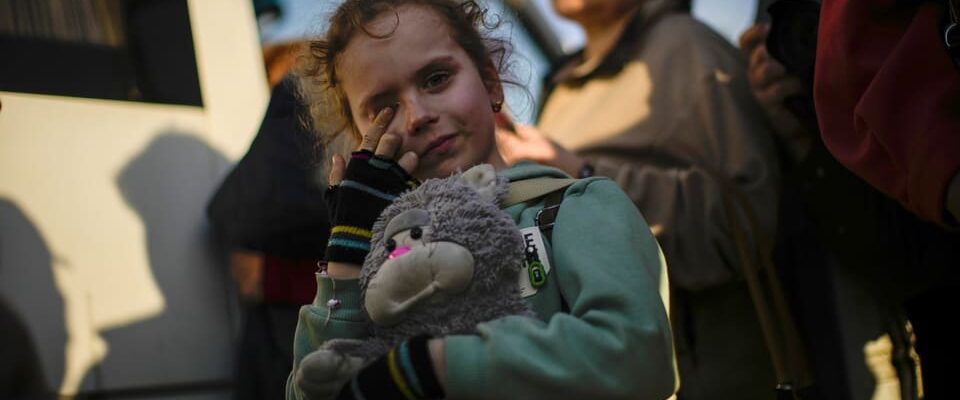Contents
The start of war two years ago led to a decline in mental health in Europe, according to a study.
Empty city centers, social distancing and Christmas in the closest family circle – ordered by the BAG: During the pandemic, there was also a state of emergency in Switzerland. And with it uncertainty, isolation and powerlessness. A mixture that weighed on many people’s minds – all over Europe.
As soon as the pandemic came to an end, new trouble loomed: Putin’s troops marched on the border with Ukraine in February 2022 – and ultimately attacked the country. The Russian war of aggression sent shockwaves across Europe.
The war in your head
A new Study in the specialist magazine “Nature Communications” now shows: The psychological stress caused by the outbreak of war for people on the continent was greater than that caused by the Corona lockdown in 2020. This is the conclusion reached by an international team of researchers.
The start of the Russian war of aggression against Ukraine two years ago led to a collective decline in well-being – regardless of the age, gender, political orientation or other characteristics of the people surveyed.
Researchers from the University of St. Gallen were also involved in the study. One of them is the behavioral scientist Clemens Stachl. “At the start of the war, many of the people surveyed in Europe were much worse off compared to the rest of the world,” explains the co-author of the study.
Far away and yet very close
The restrictions of the pandemic affected people more directly than the outbreak of war in Ukraine. But hardly anyone was able to escape the bloodshed deep in eastern Europe: “In addition to the obvious consequences of war such as escapes or interrupted supply chains, there is a less obvious dimension: the effects of daily news and images on the psyche,” says the study.
When the war broke out, people were immediately exposed to very emotionally stressful images.
In addition: While the pandemic spread slowly across the globe, the situation in Ukraine escalated virtually overnight. Russian muscle flexing on the border with Ukraine quickly turned into a full-blown war in Europe. A horror that went through many people’s bones.
Legend:
The Russian war of aggression on Ukraine has left a measurably greater mark on the mental health of people in Europe than the Fukushima nuclear disaster in 2011 and the Corona lockdown in 2020.
Keystone/AP/Francisco Seco
“When the war broke out, you were immediately exposed to very emotionally stressful images,” explains Stachl. “Fights, explosions, deaths – the images reached people from one moment to the next.” When the war in Ukraine had a particularly high profile on social media, there was, on average, poorer mental health among those surveyed.
Different recovery times
In addition to this very concrete shock experience, there was the abstract fear that the war could spread to all of Europe. The study also comes to the conclusion that those who describe themselves as mentally stable recovered more quickly from a decline in mental well-being. In people who describe themselves as less stable, this was significantly impaired for a long time.
The study authors also see this as a call to political and social actors in times of crisis. “The results indicate that offers should be created for people who are particularly affected by such events,” says Stachl.
